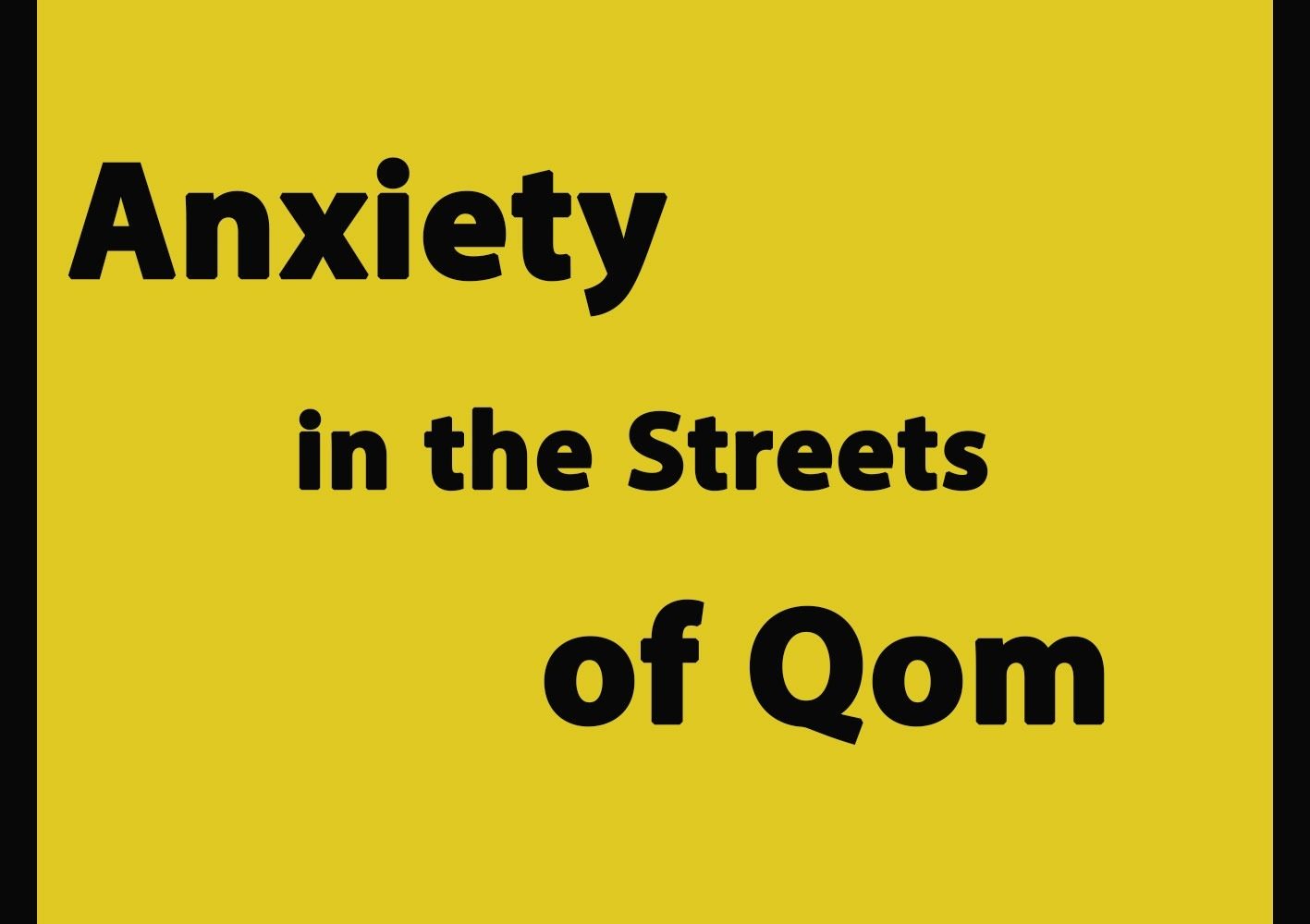Dispatches from the War: No. 6
June 22, 2025
A Report from Qom
Important Note: This report was written prior to the USA’s June 22 attack on the Fordow Nuclear Facilities, located 25 kilometers from Qom.
**
Many, like us, have come from Tehran to Qom in the hope of traveling on to other cities, and we’ve noticed that some residents of Qom have also headed north. Nevertheless, the suburban train between Qom and Tehran continues its regular operations with its usual number of passengers. Some people are stressed about the war, but the prevailing atmosphere in the city is such that cafes and malls are crowded, at nights, the Alavi Park is bustling with grilled chicken, religious individuals are visiting the shrine, and the streets are busy.
I try to engage in conversations with people I encounter on the streets. There’s no significant difference from other cities. Some who are generally supportive of the government are entirely focused on television and, based on the propaganda they see, they believe we’ve already wiped-out half of Israel and will settle the rest by the day after tomorrow. They advise each other to delete WhatsApp and Instagram, turn off their modems, and avoid connecting to the internet. They say Iran shouldn’t back down, and we won’t negotiate.
Some, who are clearly not government supporters, are exasperated by the internet shutdown and feel cut off from the news, though they still watch television just for the sake of staying somewhat informed. They are visibly anxious about the possibility of a prolonged, war of attrition, and many of them are in favor of negotiations.
I speak with two young women who tell me that the night before last, officers at a checkpoint stopped them on the street. They say everyone was being stopped and searched. One of them had told the officers, “We’re already stressed about the war, don’t add to it,” to which an officer had replied, “Sister, we’re searching you for your own safety.” A suspicious van loaded with drones had been found in Qom, and it wouldn’t be surprising if an evacuation order for the city is issued in two or three days.
A few days ago, air defense systems in the villages around Fordow (including Khaveh) were also activated.
After the first Israeli bombs hit Qom, one striking a building in the Salarieh neighborhood, reportedly the residence of the new Chief of Staff of the Armed Forces, anxiety in the city has become more palpable.
Near Sepah Square, I saw a few boys around 11 or 12 years old holding Qassem Soleimani’s poster and playing music, as if they were setting up a refreshment stall and a Salavati station (it is a booth or stand set up during religious occasions to distribute free hot or cold drinks to passersby).
As I was walking around the city, I saw a young woman and an elderly lady getting out of the elevator of a service building, chatting with each other. From their conversation, I gathered that they didn’t know each other, but both were trying to book a ride via Snapp. The young woman didn’t have internet access, and the elderly woman was alone. The young woman apologized for not being able to help the older lady. I told her Irancell’s internet was working. She said she had Hamrah-e Aval (another mobile network), and her connection had been down since morning. I booked a ride via Tapsi for the elderly woman. She asked, “What are they doing here?” (pointing to the refreshment stall).
I said, “You mean the noise, ma’am?”
– “Yes.”
– “They’re playing music for the war.”
The elderly woman’s face tightened: “They’ve killed the youth. Just today they hit someone in Salarieh neighborhood.”
I nodded.
She asked, “Who was it?”
I said, “I don’t know.” A few hours later, I found out that a 16-year-old boy had also been killed in this Israeli “precision strike.”
The elderly woman said, “Their mothers are waiting for them to come home.”
She paused, pressed her lips together, and said, “My daughter too…” Her voice cracked.
“My daughter died during COVID. She was a hospital worker. I swear to God, there are still days I wait for her to come home.”
I place my hand on her shoulder to comfort her. I’m in a hurry and need to leave. I walk her over to a juice stand a little farther down the street and entrust her to the young man working there, asking him to help her get in the taxi when it arrives. I say, “I’ve ordered a taxi for this lady, if she has trouble finding the car, could you please help her?”
A woman nearby overhears me and says, “Could you order a taxi for me too? I’ll pay the fare.”
This internet shutdown has disrupted people’s lives and work.
Overall, contrary to the common perception of Qom, assuming that because of the presence of religious seminaries or major shrines like the shrine of Masoumeh or Jamkaran, all its residents must be religious or government supporters; what’s clearly visible here, just like in other cities, is that people have the same fears and anxieties. Ordinary people are worried about the continuation of the war and the possibility of large-scale massacres. In particular, they’re afraid that because of Qom’s reputation as the ideological stronghold of the state, or due to the proximity of the Fordow nuclear facility to the city, Qom might be targeted by Israeli attacks in the coming days.



Comment here